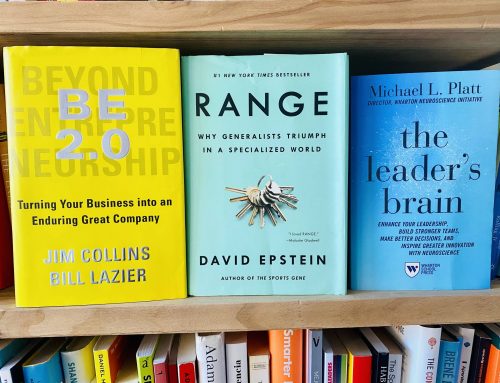During one of company’s most recent all-hands meetings, Amazon CEO Jeff Bezos received the following question from one of the attendees: “Jeff, what does Day 2 look like?” This question referred to one of the biggest mantras at Amazon, which started two decades ago and has helped the corporation multiply its earnings and their stock shares’ value year after year: the importance of thinking that it is always Day 1, of reinventing yourself and not allowing Day 2 to come. Of never settling. That is, in part the reason why Amazon has moved into one sector after another for over 22 years and succeeded at each one of them.
The last move? To flip the odds. Amazon began expanding their offline presence in order to grow online, an interesting paradox which breaks the traditional barriers between offline and online businesses (a good example is the pop-up bar opened in Tokyo).
In his annual letter to shareholders, Bezos explained the four reasons why he feels that companies should all be constantly on Day 1. This applies not only to large companies but also to startups (which will ideally get bigger) and also, and probably most importantly, to each of us in our personal lives. Here are the four reasons that resulted in Amazon being named the most innovative company of 2017:
1) True Customer Obsession
As Bezos states, the truth is that customers always want something better, and your desire to delight them will drive you to invent on their behalf. “No customer ever asked Amazon to create the Prime membership program, but it turned out they wanted it.”
Contrary to Apple or Google, Amazon is not fixated on a tightly designed ecosystem of interlocking apps and services. “Our customers are loyal to us right up until the second somebody offers them a better service,” wrote Bezos. This requires the vulnerability and drive to constantly reinvent yourself in order to survive (and enjoy the ride, obviously). But this is uncomfortable and not many companies want to go through it.
Besides, creating a customer-obsessed culture forces companies and people to be more empathetic (with our customers, our friends, our relatives) and it creates the perfect conditions to experiment, to accept failure and to question the status quo.

2) Resist Proxies
The bigger a company gets, the more chances it will get to start managing to proxies. This can make us prioritize the process itself rather than the actual outcome we want to accomplish. We’ve all heard people defend a bad outcome with the famous “Well, we followed the process.” Do you own the process or does the process own you?
3) Embrace External Trends
“The world has a tendency to push us into Day 2 if we don’t embrace powerful trends quickly. If we embrace them we will have a tailwind.”
Two of these trends are Machine Learning and Artificial Intelligence, yet many organizations haven’t yet embraced them, which will keep them behind.
Amazon’s vision led the company to join these trends many years ago. The result today? Prime Air delivery drones, Amazon Go convenience store with no checkout lines, Alexa…you name it. But these innovations take time. The investment you do today, will give you benefits in a number of years. This requires patience, something difficult to hold in the corporate world, where “short term results” and “due yesterday” are the phrases we hear the most.
Innovation is linked to always staying alert to the latest of the latest. Who are the innovators in your field of work? The closer we get to them, the easier it will be to get a tailwind.
An important learning from this is that the most important job is often the least visible one. In Amazon’s case it was developing algorithms for demand forecasting, fraud detection, etc. What are the less visible actions that will drive the biggest impact to your venture or to your career move?
4) High-Velocity Decision Making
“Day 2 companies make high-quality decisions, but they make high-quality decisions slowly. To keep the energy and dynamism of Day 1, you have to somehow make high-quality, high-velocity decisions.”
No matter the size of our organization, there are small actions that will keep us from losing the Day 1 dynamism. Here are a few examples:
- using reverse mentoring.
- making decisions when having 70-80% of the information you wish you had (waiting to have more usually brings more cost than benefit).
- devoting a percentage of our time to R+D+i (i.e: “Fridays will be our brainstorming day”).
Bezos gave four reasons that explained Amazon’s success and I would add a fifth one: the responsibility to bridge the gaps in society through the company’s values and influence. I still remember when Amazon was one of the few companies operating in Washington, D.C. during the heavy snowstorm in 2016, delivering food to lots of people isolated in their homes).
This “extra mile” was also shown in this sensitive and moving ad.
What are the small actions that make you feel like being on Day 1?







Very inspiring post Pedro, as usually. Can`t wait for next one.
Best,
Javi.
Thanks Javi!! My pleasure!!